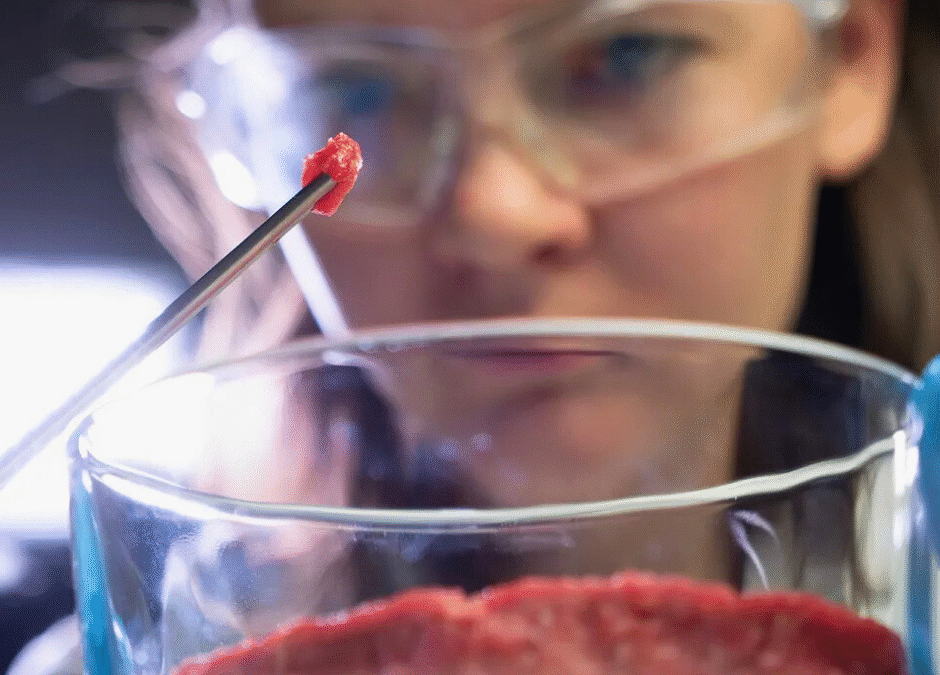Picture this: you walk into your local Kroger or Piggly Wiggly, and sitting right next to the regular ground beef is a package labeled “cultivated chicken” – meat that was grown in a lab from animal cells, no actual chickens required. Sounds like science fiction? Well, it’s closer to reality than you might think. But here in Mississippi and several other states, lawmakers have decided they want nothing to do with this meaty revolution.
The Great Cultivated Meat Divide
While some food enthusiasts are eagerly awaiting lab-grown steaks, Mississippi has joined six other states in deciding they want nothing to do with cultivated meat. The Magnolia State, along with Florida, Alabama, Montana, Indiana, Nebraska, and Texas, has rolled out the red carpet for traditional livestock while showing lab-grown alternatives the door.
These bans aren’t just gentle suggestions either. They typically prohibit everything from manufacturing and selling to simply holding or distributing cultivated food products within state borders. It’s like putting up a “No Lab Meat Allowed” sign at the state line.
Europe Joins the Party (Sort Of)
The resistance isn’t just an American phenomenon. Across the pond, Italy made headlines in 2023 by becoming the first European country to ban cultivated meat entirely. Romania’s Senate jumped on the bandwagon with their own ban, though the European Union is still scratching its head about how this fits with their single market rules.
Hungary tried to join the club but hit a roadblock when the European Commission and other EU member states basically said, “Hold on there, partner.” Sometimes even bans get banned.
Why All the Fuss?
So what’s driving all this anti-lab-meat sentiment? The reasons are as varied as they are passionate.
Protecting the Home Team Many of these bans, including Mississippi’s, come down to good old-fashioned economic protection. The state’s cattle ranchers and poultry farmers – who contribute billions to Mississippi’s economy – are understandably nervous about a technology that could potentially make their livestock operations obsolete. It’s the classic David versus Goliath story, except David has a lab coat and Goliath has a cowboy hat and knows how to raise prize-winning beef cattle.
Health Question Marks Then there’s the health angle. Since cultivated meat is still relatively new, there’s genuine uncertainty about long-term health effects. Some critics worry about genetic engineering aspects or potential cancer-promoting properties. When you’re dealing with something that didn’t exist a few years ago, it’s natural for people to want more answers before diving in.
Safety First Food safety concerns add another layer of complexity. Critics question whether the ingredients and production processes used in cultivated meat are safe enough for widespread consumption. After all, growing meat in a lab involves a whole different set of potential contaminants than traditional farming.
Cultural Food Fights Perhaps most interestingly, some opposition stems from cultural and ethical grounds. For many Mississippians, there’s something fundamentally “unnatural” about lab-grown meat that rubs against traditional Southern food practices and values. In a state where Sunday dinner often centers around home-raised chicken or locally-sourced catfish, the idea of laboratory-produced protein doesn’t sit well with deeply rooted food traditions.
The Legal Battlefield
The story doesn’t end with the bans, though. Florida’s prohibition is already facing legal challenges, and some cultivated meat companies are considering taking their cases to court. It’s shaping up to be a fascinating legal battle between innovation and tradition.
What’s Next?
Here’s the thing: lab-grown meat is still very much in its infancy. Despite all the controversy, widespread commercial availability is still years away. The USDA and FDA are still working out the regulatory framework, which means we’re essentially having a heated debate about something that most people won’t be able to buy anytime soon anyway.
Some states like Indiana and Texas have implemented temporary bans specifically to allow time for more research. It’s like pressing the pause button on the whole controversy while scientists and regulators figure things out.
Whether you’re team traditional beef or team test-tube chicken, one thing’s clear: the cultivated meat debate reflects deeper questions about food, technology, and change. These bans represent more than just policy decisions – they’re statements about what kind of food future different communities want to embrace.
As this technology continues to develop, we’ll likely see more legal battles, more research, and probably more passionate debates at dinner tables across Mississippi and the country. The lab-grown meat revolution might be coming, but it’s going to have to navigate a complex landscape of regulation, tradition, and very strong opinions along the way. One thing’s for sure: the intersection of food and technology never lacks for drama, and this food fight is just getting started.


Recent Comments